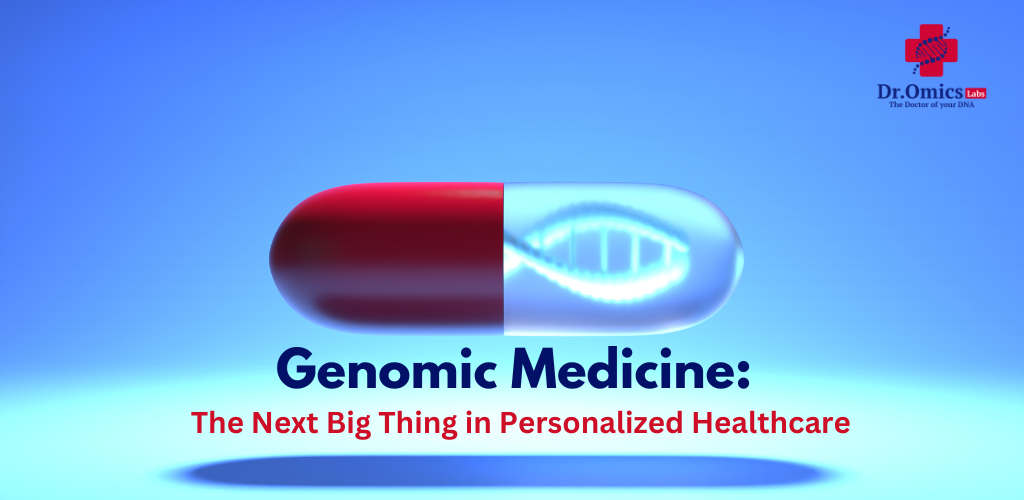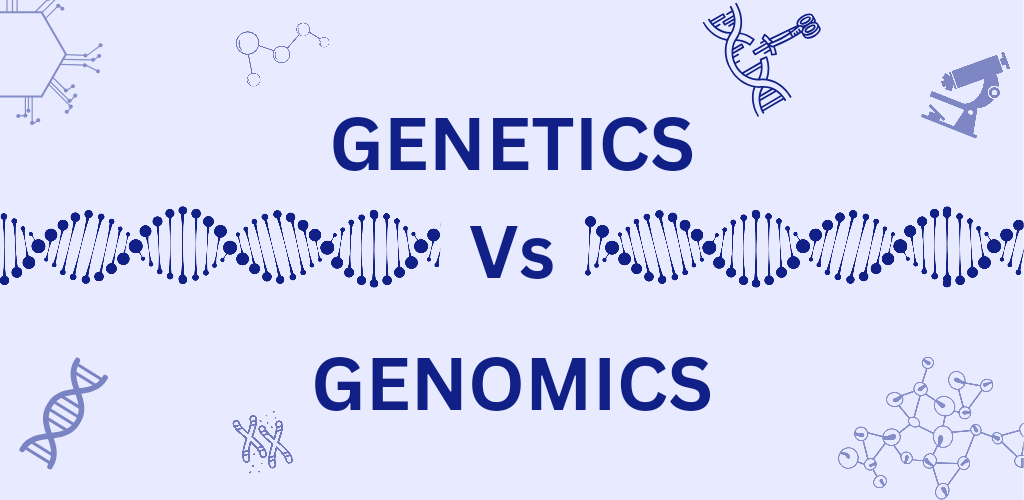Genomic Medicine: The Next Big Thing in Personalized Healthcare
Rapid advances in genomic medicine are fundamentally reshaping the way healthcare is delivered. By integrating sophisticated genetic testing including personalized healthcare DNA tests for diseases and risk assessment clinicians now tailor prevention strategies, diagnostics, and treatments to an individual’s unique genetic makeup. This evolution in care is paving the way for true precision medicine genomics where therapies are not only targeted but also more effective.
The Science Behind Genomic Medicine
Genomic medicine analyzes an individual’s complete genetic information to identify relevant variations associated with disease risk and potential treatment outcomes.Through advanced techniques like whole-genome sequencing (WGS) to identify specific disease-causing mutations and variants, and polygenic risk scoring (PRS) to assess the cumulative effect of numerous common genetic variants on disease predisposition, healthcare providers are able to:
- Identify Disease Predisposition: Detect specific mutations and assess overall genetic risk for conditions such as cancer, cardiovascular disease, and neurodegenerative disorders.
- Optimize Drug Selection: Utilize available pharmacogenomic data to inform the selection of drug types and adjust dosages for certain medications, with the goal of reducing adverse reactions and enhancing efficacy.
- Inform Preventative Strategies: Explore potential lifestyle and nutritional recommendations based on identified genetic predispositions to potentially mitigate future health risks, acknowledging that this is an evolving area of research and clinical application. [1]
In this paradigm, genomics in healthcare is more than a diagnostic tool, serving as a cornerstone for transforming patient care from reactive to proactive.
How Genetic Testing Translates to Actionable Insights
The practical applications of genetic testing are vast. For example:
- Cancer Risk and Treatment: Identification of mutations in genes such as BRCA1/BRCA2 through genetic testing can indicate a higher risk for breast and ovarian cancers, prompting early surveillance and personalized treatment plans. [2]
- Cardiovascular Health: The presence of specific variants in genes like PCSK9 informs the use of lipid-lowering medications, optimizing therapy for individuals predisposed to heart disease. [3]
- Metabolic Disorders: Genetic markers associated with diabetes can influence decisions regarding pharmacologic and lifestyle interventions for individuals with or at risk of developing the condition. [4]
By translating genetic data into clinical action, precision medicine not only improves outcomes but also minimizes unnecessary or ineffective treatments.
Breakthroughs and Emerging Trends in Genomic Science
The landscape of genomic science is rapidly evolving. Here are some of the latest trends that are propelling this field forward:
- CRISPR and Gene Editing: Revolutionary gene-editing tools like CRISPR are showing promise in correcting genetic defects at their source, offering potential therapeutic avenues for hereditary diseases, with ongoing research and clinical trials. [5]
- Multi-Omics Integration: Combining genomics with proteomics, metabolomics, and transcriptomics deepens our understanding of complex biological systems and disease mechanisms. [6]
- Artificial Intelligence in Genomics: Machine learning algorithms are now employed to sift through vast genomic datasets, identifying patterns that inform risk prediction and therapeutic strategies. [7]
- Direct-to-Consumer Innovations: The direct-to-consumer market for genetic testing or best DNA test for health is expanding, offering accessible insights that empower individuals to participate actively in their health management.
These breakthroughs are not only advancing our understanding of human biology but are also reshaping how we approach disease prevention, diagnosis, and treatment.
Conclusion
As the era of genomic medicine unfolds, the fusion of genomics in healthcare with clinical practice is setting the stage for unprecedented levels of personalized care. With ongoing advancements in precision medicine genomics and increasingly sophisticated personalized healthcare DNA tests, the potential to preempt disease, optimize treatments, and enhance patient outcomes is immense. The future of medicine is undoubtedly intertwined with the rapid evolution of genomic science, signaling a shift away from a one-size-fits-all approach towards truly individualized healthcare. Embracing these innovations today will pave the way for a healthier tomorrow—one where every patient receives care that is as unique as their genetic code.
References
- Riess, O., Sturm, M., Menden, B. et al. Genomes in clinical care. npj Genom. Med. 9, 20 (2024). https://doi.org/10.1038/s41525-024-00402-2
- Godet, I., & Gilkes, D. M. (2017). BRCA1 and BRCA2 mutations and treatment strategies for breast cancer. Integrative cancer science and therapeutics, 4(1), 10.15761/ICST.1000228. https://doi.org/10.15761/ICST.1000228
- Rao, A. S., Lindholm, D., Rivas, M. A., Knowles, J. W., Montgomery, S. B., & Ingelsson, E. (2018). Large-Scale Phenome-Wide Association Study of PCSK9 Variants Demonstrates Protection Against Ischemic Stroke. Circulation. Genomic and precision medicine, 11(7), e002162. https://doi.org/10.1161/CIRCGEN.118.002162
- Rodrigues, K. F., Yong, W. T. L., Bhuiyan, M. S. A., Siddiquee, S., Shah, M. D., & Venmathi Maran, B. A. (2022). Current Understanding on the Genetic Basis of Key Metabolic Disorders: A Review. Biology, 11(9), 1308. https://doi.org/10.3390/biology11091308
- Macarrón Palacios, A., Korus, P., Wilkens, B. G. C., Heshmatpour, N., & Patnaik, S. R. (2024). Revolutionizing in vivo therapy with CRISPR/Cas genome editing: breakthroughs, opportunities and challenges. Frontiers in genome editing, 6, 1342193. https://doi.org/10.3389/fgeed.2024.1342193
- Subramanian, I., Verma, S., Kumar, S., Jere, A., & Anamika, K. (2020). Multi-omics Data Integration, Interpretation, and Its Application. Bioinformatics and biology insights, 14, 1177932219899051. https://doi.org/10.1177/1177932219899051
- Quazi S. (2022). Artificial intelligence and machine learning in precision and genomic medicine. Medical oncology (Northwood, London, England), 39(8), 120. https://doi.org/10.1007/s12032-022-01711-1




